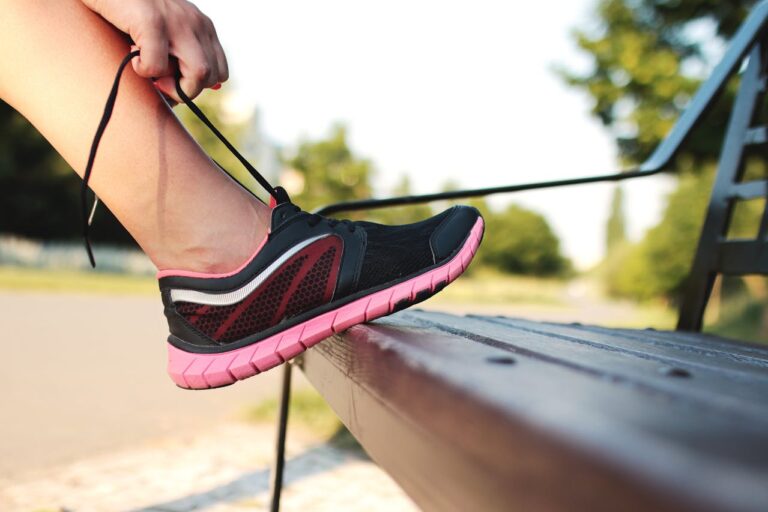Introduction
When it comes to studying, most advice focuses on sitting down at your desk, reviewing notes, or finding the perfect playlist for concentration. But what if the secret to better focus, memory, and academic performance lies not in the library, but in a jog around the block?
Science has shown time and again that regular exercise can significantly improve cognitive function, especially when it comes to learning and memory. Whether you’re a student prepping for exams or a professional upgrading your skills, physical activity might just be the productivity hack you didn’t know you needed.
This blog will explore the connection between exercise and cognitive benefits, the best types of workouts for enhancing brainpower, and how to integrate fitness sessions into your study routine for maximum results.
The Science Behind Exercise and Cognitive Function
How Exercise Impacts the Brain
Exercise does more than keep us physically fit; it creates profound changes in the brain. When you’re physically active, your body pumps more oxygen-rich blood to the brain, which has been linked to improved cognitive performance. Here’s how it works on a deeper level:
- Boosts Neurogenesis
Regular exercise promotes the production of new neurons in the hippocampus, an area of the brain critical for memory and learning.
- Improves Neuroplasticity
Neuroplasticity refers to the brain’s ability to reorganize itself by forming new connections. Exercise enhances this process, making it easier to learn new concepts.
- Enhances Mood and Reduces Stress
Physical activity increases the release of mood-enhancing chemicals like endorphins and serotonin. Lower stress levels mean fewer mental distractions and better focus while studying.
- Improves Sleep Quality
Exercise has been shown to help regulate sleep patterns. Good sleep is essential for memory consolidation, making it a crucial component of effective learning.
Key Research Findings
Several studies reinforce the link between exercise and better cognitive performance. For example:
- A study published in Trends in Neuroscience and Education found that students who participated in physical activity before studying retained more information than those who didn’t.
- Harvard Medical School outlines how aerobic exercises like running or swimming can improve attention span, problem-solving skills, and memory.
The evidence is clear: moving your muscles works wonders for your mind!
The Best Types of Exercise for Cognitive Enhancement
Not all workouts are created equal when it comes to improving brainpower. Here’s a breakdown of exercises you can incorporate into your routine—and why they work.
1. Aerobic Exercise
Examples: Running, cycling, swimming
- Aerobic workouts increase heart rate, improving blood flow to the brain. This leads to better memory retention and learning clarity over time.
- Studies recommend 150 minutes of moderate aerobic activity per week for the best cognitive results.
2. Strength Training
Examples: Weightlifting, resistance bands, bodyweight exercises
- Strength training helps regulate blood sugar levels, which has been tied to better brain health.
- It also improves mental resilience, helping you stay calm under academic pressure.
3. Yoga and Mindful Movement
Examples: Yoga, tai chi, pilates
- These exercises combine physical activity with mindfulness, reducing stress and improving focus.
- Yoga has been specifically linked to better attention spans and emotional regulation, both critical for effective studying.
4. Short, High-Intensity Workouts
Examples: HIIT (High-Intensity Interval Training)
- HIIT exercises are highly efficient for people with tight schedules.
- Studies suggest that short bursts of intense activity can bring immediate cognitive benefits, such as improved focus and sharper decision-making.
How to Incorporate Exercise into Your Study Routine
Finding a balance between exercise and studying doesn’t have to be challenging. Here are some practical strategies to make fitness a regular part of your learning schedule.
1. Start with Morning Workouts
Kickstart your day (and your brain) with a quick workout. Morning exercise has been shown to boost cognitive performance throughout the day.
2. Use Exercise as a Study Break
Struggling to stay focused after an hour of studying? Take a 10-15 minute movement break. A quick jog or stretching session can re-energize your mind.
3. Combine Exercise with Learning
Why not kill two birds with one stone? Listen to an educational podcast or audiobook while walking or running. It’s a great way to absorb new information while staying active.
4. Schedule Workouts Before Exams or Meetings
Exercise shortly before mentally demanding tasks like exams or presentations. Short bursts of physical activity provide an immediate boost in focus and brainpower.
5. Join Group Activities
Exercising with friends or joining a fitness class can help keep you motivated and reduce study-related isolation.
6. Don’t Overdo It
While exercise is incredibly beneficial, too much can leave you feeling drained rather than focused. Stick to a moderate routine that fits your capacity. The goal is to enhance your cognitive performance, not exhaust yourself.
How Exercise Transforms Your Study Experience
Integrating regular physical activity into your life doesn’t just enhance cognitive function—it transforms your entire approach to learning:
- Improve memory and make information stick longer.
- Tackle complex problems with greater mental clarity.
- Build resilience to overcome academic or workplace challenges.
Beyond studying, regular exercise can lead to a more balanced, happy life. It’s a true investment in both your physical and mental future.
Want More Brainpower? Start Moving Today
Exercise and studying may seem worlds apart, but science shows they’re a perfect match. By incorporating regular physical activity into your daily routine, you can unlock greater focus, better memory retention, and a sharper mind—all essential for academic and professional success.
Small steps matter. Begin with a short walk, a yoga session, or some light weightlifting, and feel the incredible difference it makes to your study sessions.
Looking for more ways to optimize your life for learning? Subscribe to our newsletter for practical tips and the latest research on personal productivity.





















0 Comments